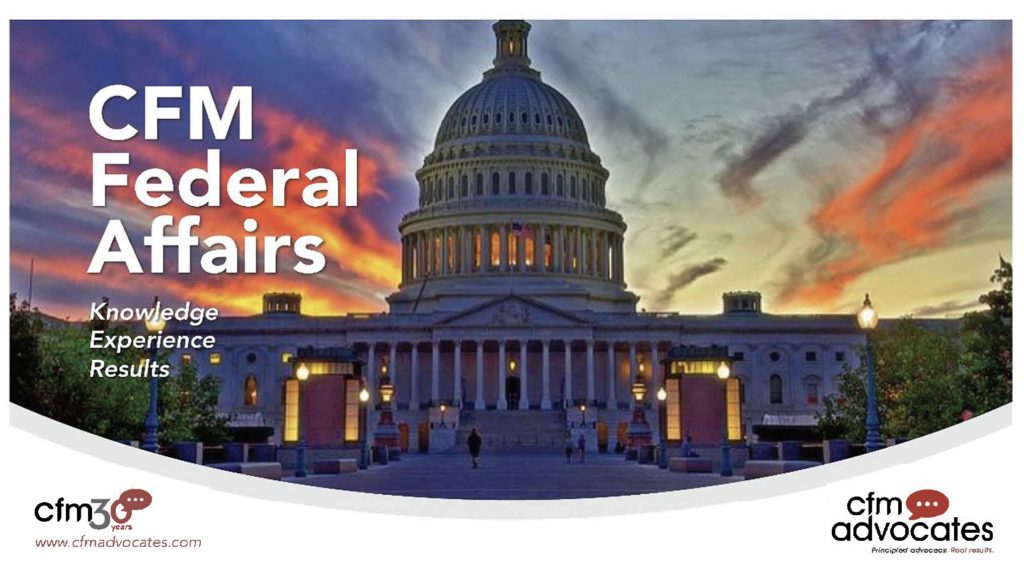
The death of former Senate Majority Leader Harry Reid has reinvigorated Democratic talk about changing Senate filibuster rules to clear a path for floor consideration of voting rights legislation, which has been blocked by Republicans.

Reid, who was remembered at a memorial service over the weekend in Las Vegas, led a successful effort to exempt Senate confirmation votes on federal district and appellate judges from filibusters. When Mitch McConnell became Senate Majority Leader after Republicans regained control, he expanded the exemption to include Supreme Court judges.
Current Senate Majority Leader Chuck Schumer has signaled he will bring voting rights legislation to the Senate floor and consider a filibuster rule change to ensure a vote occurs before January 17, which is Martin Luther King Jr. Day. Senate Republicans remain united in opposition to voting rights legislation and Schumer isn’t certain he can count on support from all 50 Senate Democrats to create the filibuster exemption or vote for the legislation.
FY 2022 Appropriations
Lawmakers also face a deadline of their own making to approve Fiscal Year 2022 appropriations. The federal government is operating on a continuing resolution that expires February 18. House and Senate Democrats hope to shape on an omnibus spending measure by that deadline to avoid another temporary funding fix.
Last year, Senate Democrats released nine appropriations bills that would increase defense funding by 5 percent and domestic and foreign aid programs by roughly 13 percent. Last summer the House Appropriations Committee on a party-line vote approved a 16 percent increase for domestic and foreign spending and a 2 percent increase for defense spending.
Republicans have rejected Democratic topline allocations, saying there must be parity between defense and nondefense spending increases. Republicans also object to Democratic appropriator have removal of longstanding provisions barring federal funds for abortions. While there reportedly has been progress in negotiations behind the scenes, Republicans want Democrats to restore “status quo” language on abortion and other policies before wrapping up discussions on final funding allocations. Abortion provisions have taken on greater political prominence as the Supreme Court is considering cases that could limit or even eliminate the 50-year-old Roe v. Wade ruling on women’s right to abortion.
Build Back Better Act
The Build Back Better Act has moved to a back burner, at least for now, after Senator Joe Manchin announced late last year he was unable to support even a modified version of the human infrastructure spending package. Schumer has threatened to bring the latest iteration of the legislation to the Senate floor to put all senators on the record as opposed or in favor of the nearly $2 trillion measure.
Senate Majority Leader Chuck Schumer has signaled he will bring voting rights legislation to the Senate floor and consider a filibuster rule change to ensure a vote occurs before January 17, which is Martin Luther King Jr. Day.
Manchin has indicated he is willing to keep talking, but reiterated his concerns over inflation, spending levels and the structure of the child tax credit.
State, Local Spending Flexibility
The Treasury Department released its final rule that gives states and local governments more flexibility in using $65 billion allocated to them in the American Rescue Plan Act enacted early last year. The final rule becomes effective April 1.
The new rule allows state and local governments to spend funds on modernizing cybersecurity, rehabilitating water and sewer systems and providing premium pay for eligible essential workers. The rule also allows recipients to use recovery funds on capital projects to address health and economic impacts.
Vaccine Mandates
The Supreme Court heard oral arguments regarding challenges to Biden administration vaccine mandates for large employers and health care workers, which have been in legal limbo since they were issued last year.
Court reporters who observed oral arguments indicated a majority of justices looked favorably on the health care workers vaccine mandate, but not so much on the employer mandate. The healthcare worker mandate has been challenged by several Republican-led states on grounds it was unlawful and would aggravate existing healthcare staff shortages. The employer mandate challenge questions the legal standing of the Department of Labor to impose such a mandate.
Rulings on both mandates are expected soon.




